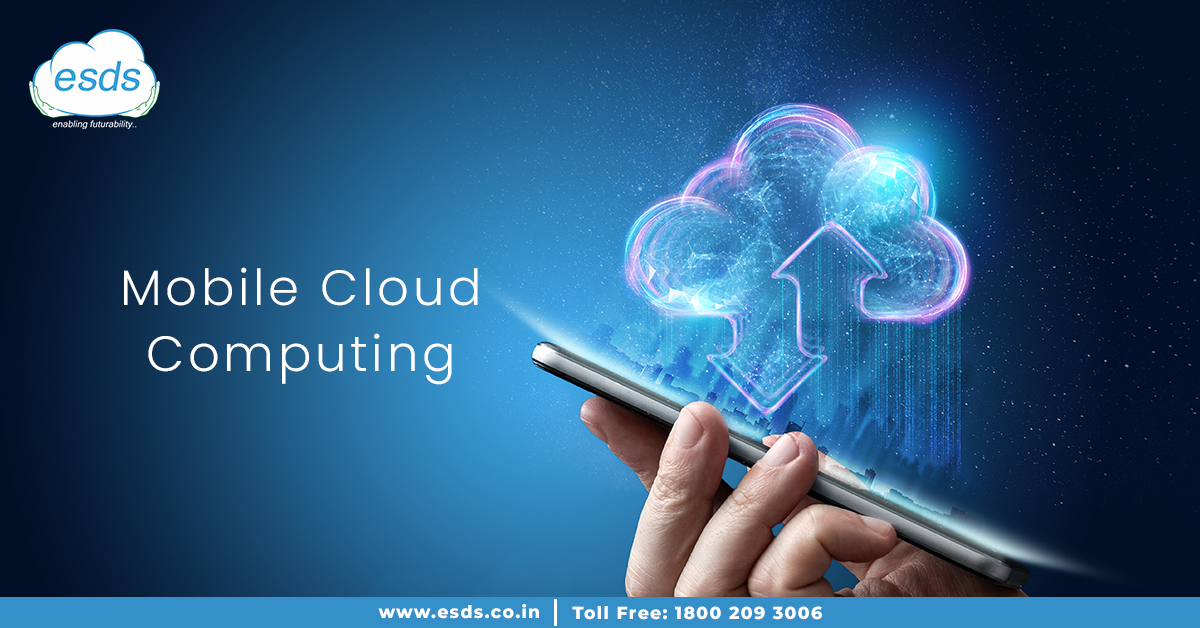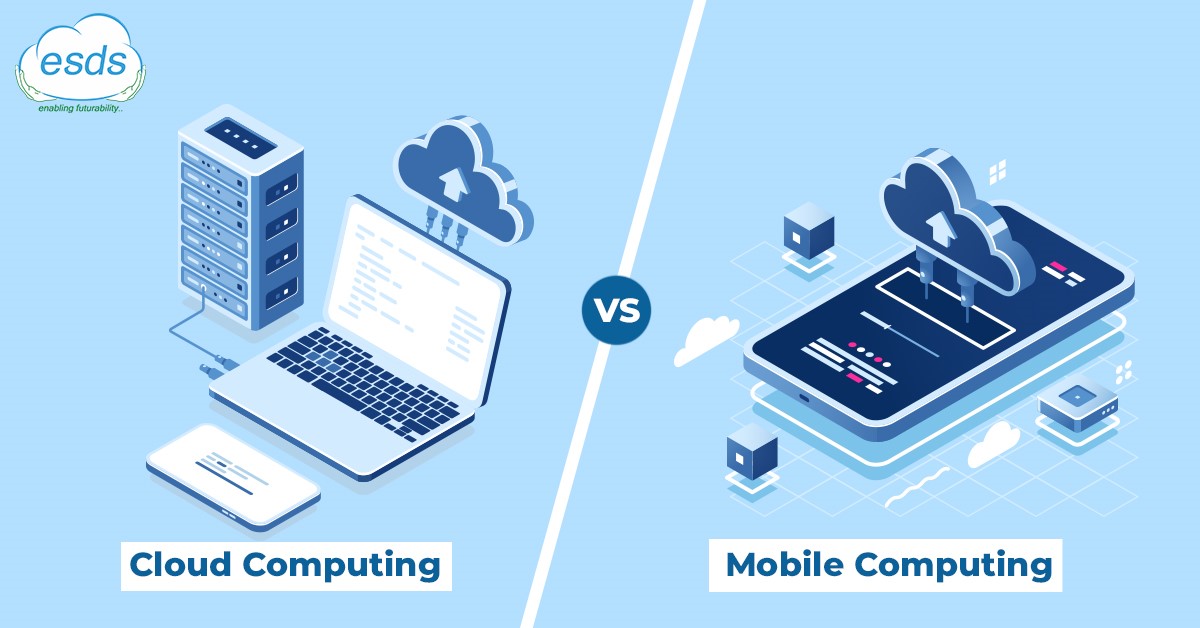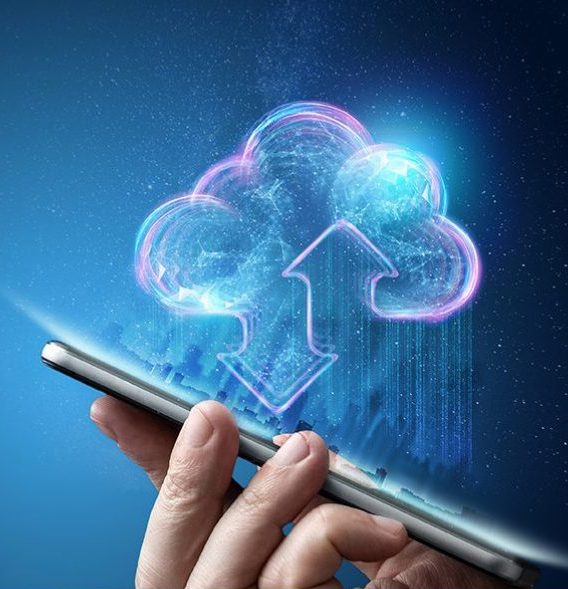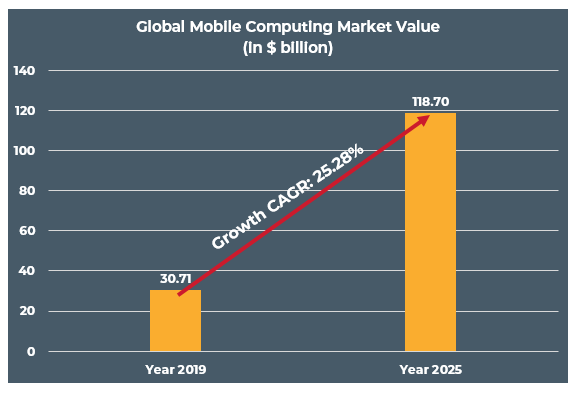Exploring Mobile Cloud Computing
This century we have witnessed two major technology trends that have changed our lives. These two technologies are- cloud computing and mobile technology. Talking about mobile cloud computing, it is an infrastructure where data storage, as well as processing, takes place outside the user’s mobile device.

Mobile Cloud Computing
Mobile Cloud Computing, abbreviated as MCC refers to a combination of cloud computing, mobile computing as well as a wireless network for driving rich computational resources to mobile users, network providers along with cloud computing providers. The underlying concept of Mobile Cloud Computing is to execute mobile applications over several devices at the same time. The Mobile Cloud Apps combines the strength of centralized and powerful cloud computing platforms present in different locations in the cloud. When it comes to monetary benefits, MCC is an economical option that reduces human time as well. The reason why MCC is economical is because of the fact that it is based on the principle of as you go.
The architecture of Mobile Cloud Computing
Mobile Cloud Computing is based on the computational augmentation approach that is executed remotely rather than going for execution on the device. Using computational augmentation, mobile devices use computational resources of diverse cloud-based resources. These are- distant in mobile Cloud, mobile computing, the proximity of mobile computing elements, and most important a hybrid cloud.

Mobile Cloud Computing Architecture
Why Mobile Cloud Computing?
Following are the reasons that support why one needs to choose Mobile Cloud Computing
- Instant Development
Today, cloud companies have been developing mobile applications that would help customers regularly. These applications are backed by upgrades that help in improving the performance of applications. As these applications are continuously being improved, it has resulted in a quick development taking place in Mobile Cloud Computing.
- Flexibility
The mobile applications are being built with the aim of maximum reach and flexibility. Several development approaches are being followed today and all these are supported using Mobile Cloud Computing. In Mobile Cloud Computing, the customer can choose the services that are needed for expanding their businesses and make it more flexible.
- Secure
Mobile Cloud Computing is considered to be reliable by storing all the data on the cloud, providing enhanced data security. The cloud-backed up data can be retrieved anytime in a secured channel. All these mobile cloud-based applications are protected by a password, so in case there is any loss/damage done to the mobile device, the cloud remains secured free from all kinds of risks.
Advantages of Mobile Cloud Computing
- Flexibility
Mobile Cloud Computing is highly flexible as it allows access to data from any location at any instance of time. All the customer requires is a device with an active Internet connection from which he can access the cloud data.
- Availability at Multiple Platforms
Cloud computing applications developed by the companies can be easily accessed across multiple user’s mobile platforms like IOS, Android. The cloud has easy access and can be easily modified irrespective of the platform that the user is using.
- Economical Option
With mobile cloud computing, the user can eliminate the hardware cost and this proves to be one of the cost-effective alternates to use as well as maintain. Mobile Cloud Computing possesses very little cost and the end-consumer needs to only pay for what he has used.
- Data Backups and Recovery
The data stored using the mobile Cloud application can be backed up with ease and then retrieve whenever needed. A cloud disaster recovery plan comprises of storing and maintaining replicas of data at different locations, by maintaining top-notched security levels.
How is Cloud Computing Different from Mobile Computing? The basic similarity that exists between these two is that there is a use of wireless systems for transmitting their data.

So, the following are some factors that differentiate the two technologies
With cloud computing deployed, it bridges the affordability gap that exists between the client’s local/closed networks and their private data storage as well as backup systems. On the other hand, mobile computing allows many functions such as- accessibility of the Internet using browsers, supporting several applications. All these functions are supported by a core operating system and have the ability to performing an exchange between different data types.
Cloud computing is all about designing the latest technologies and services that are going to allow wireless or wired data sharing to take place across distributed networks. Whereas, mobile computing refers to the development of new hardware along with interfaces.
With cloud computing, businesses get the ability to access services and functionalities that were unavailable using wired connections. The mobile cloud operates on the functionality of making the services available using different mobile network operators.
In cloud computing, it is assumed that there is a joint entry point allowing the users to store and manage their files while using the entire range of advanced computing resources. On the other hand, mobile computing emphasizes more on smart connectivity rather than focusing on virtual hosting & hosting of resources.
Market Growth of Mobile Cloud
The Mobile Cloud market was valued at $30.71 billion in 2019. It is predicted that the market will reach $118.70 billion by the year 2025. During the forecasted period, i.e. 2020-2025, this market will witness a growth CAGR of 25.28%.
Concluding Remarks
Mobile Cloud Computing is an emerging technology having the ability to change how computing works. Despite offering above-stated benefits, Mobile Cloud Computing has certain drawbacks as well such as- mobile communication issues, issues related to their computing. In today’s time, it is a widely-used technology that helps in making the working easier by allowing any time, anywhere and anyhow access.
- Considering Data Centers in India to Overcome Economic Conditions - May 10, 2022
- Determining Why Your Organization Needs Web Application Security - February 11, 2022
- How Does a Business Benefit with Managed Services - January 21, 2022


